China is becoming an increasingly important market for wine-maker Giovanni Bulgari – a member of the famous jewellery family – now accounting for more than a quarter of annual sales.
Bulgari, who used to be a gem buyer for the Italian jeweller, quit the corporate life to become a wine maker. He did it the hard way, buying a Tuscan vineyard, replanting all the vines and building a new production facility, a project that took more than four years. All processes and facilities at the vineyard are as eco-friendly as possible, using thermal sources and solar power.
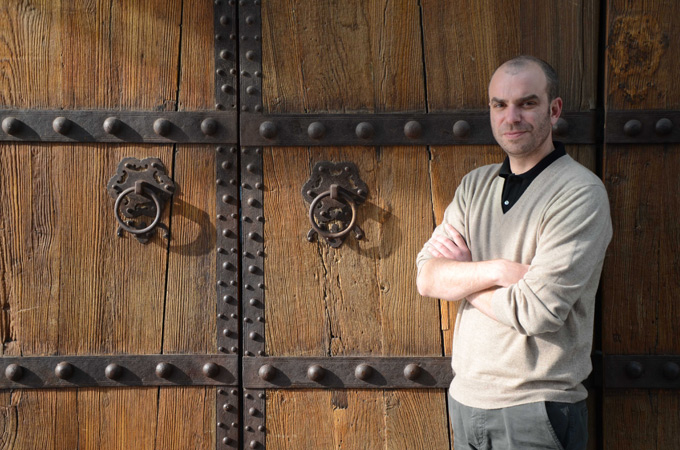
It is a story that fascinates people in China, as he found on a recent visit to promote the wines of Podernuovo a Palazzone. The flagship wine Sotirio, is made of Sangiovese harvested from a single vineyard of just three hectares while Therra is a blend of Sangiovese, Montepulciano, Cabernet Sauvignon and Merlot. A third wine, Argirio, is made of Cabernet Franc.
“The three wines have very different characters, so you can always find your wine,” says Bulgari. “My blend is appreciated because there are a lot of different grapes two international, two Italian, so it is easy to match it with Chinese cuisine which has a lot of different tastes together on the table. The Sangiovese needs more time to understand, it is a more difficult wine, it is less concentrated and there is an idea that concentration is synonymous with quality.”
Bulgari was gratified to find that he was asked serious, and knowledgeable, questions about the wines during this visit to China, which took in Beijing, Chengdu, Shanghai and Hong Kong.
Naturally, guests at the wine tastings and dinners were intrigued to know why Bulgari had walked away from a top job, in his case sourcing gems from around the world, to work on the land. He delivers the answer with passion. “I liked my previous job, it took me all over the world and I loved working with stones and developing high end jewellery, finding a nice layout and working on it with the jewellers.
“The vineyard was a gradual thing. I had a big passion for nature since I was little, to stay in open space with the soil beneath my feet with the seasons changing. I think producing wine is the highest expression of agriculture, formation of something in a creative way.”
Work started on reviving the winery in 2004, with major replanting, work on the soil and the construction of new facilities. The first two vintages, in 2009 and 2010, received positive reviews, vindicating the wine-maker’s years of toil.
Production is now around 130,000 bottles annually, with more than a quarter destined for China, distributed by Sarment, which has stores in Shanghai, Chengdu and Hong Kong. The price for the wines ranges from RMB300 through to RMB1,000.
Bulgari, 38, is already penciling in another visit for this year, realising the importance of the personal touch in China. Crossing continents is a major change from his usual weekly routine which involves spending four days on the Tuscan vineyard another at an olive estate in Umbria and the weekend at the family home in the Italian capital, Rome.
He adds: “I am really enjoying this part of my life, I hope the quality of my wine will go up, this is just a start but it is a good start. It is the kind of work where you never stop learning. Maybe for me all the year I want my wine to express the terroir and the philosophy of the people working there.”
All rights reserved by Future plc. No part of this publication may be reproduced, distributed or transmitted in any form or by any means without the prior written permission of Decanter.
Only Official Media Partners (see About us) of DecanterChina.com may republish part of the content from the site without prior permission under strict Terms & Conditions. Contact china@decanter.com to learn about how to become an Official Media Partner of DecanterChina.com.

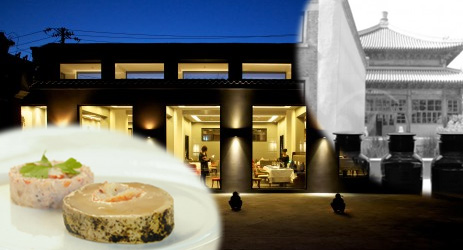
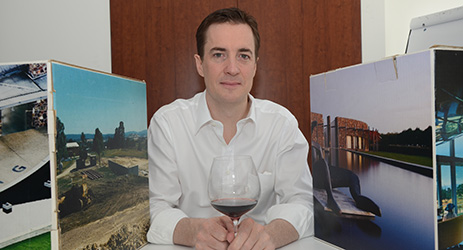
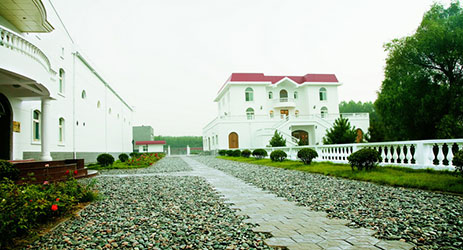
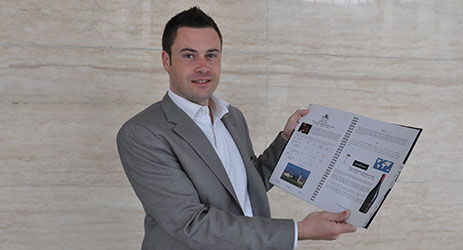
Comments
Submit